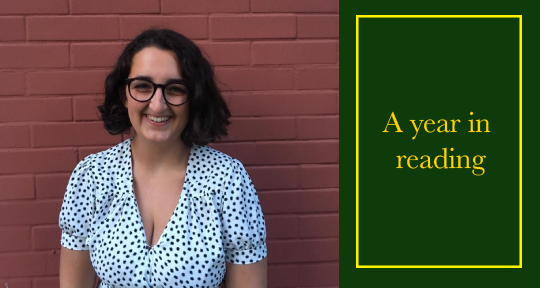Here to continue our A Year in Reading series, please welcome Georgina Fooks, who made a conscious effort at the start of the year to expand her reading to include more women and non-European authors. Here is the result:
At the start of 2019, I consciously decided to read as much as possible. After several years of buying books and never reading them (a predicament neatly summed up by the Japanese word tsundoku), I resolved that this year, I wanted to read more books while buying less—so it is that I’ve done my best to read from my own shelves (although that doesn’t mean I have stopped buying books entirely).
The first half of this year was dominated by reading for academic purposes—so I read lots of French and Latin American fiction and poetry. My favourite author is Marguerite Duras, and I enjoyed Le Ravissement de Lol V. Stein; there’s something special about the atmosphere she paints through language, her evocative style, and the way she explores desire. Throughout the whole book, Duras keeps you guessing as to who’s in control, who holds power, and she never answers that question for you. I was also really moved by A l’ami qui ne m’a pas sauvé la vie by Hervé Guibert, which is an emotional read that blurs the boundaries between fiction and autobiography. When published in France, it caused a media stir for recounting how Michel Foucault died of an AIDS-related illness, but beyond media sensationalism, it’s a heart-wrenching account that explores betrayal in all its forms—betrayals between friends, broken promises, and the betrayal of oneself when writing an account of your own life.
Some of my favourite Latin American authors are from Argentina, so in addition to reading Borges and Cortázar, two of my favourites, I also enjoyed exploring Silvina Ocampo’s stories for the first time; she is famously overshadowed by Borges (a fellow writer) and Adolfo Bioy Casares (her husband), but she’s received a lot more attention in recent years. My favourite story of hers, “Tales eran sus rostros”, has now been translated into English and serves as the title of a new collection of hers in English: Thus Were Their Faces, published by NYRB Classics. It describes a supernatural phenomenon, and is haunting and ambiguous in the best possible way. She writes that no one knew if what happened was terrible, but became beautiful, or beautiful, but became terrible—but she leaves it up to the reader to decide. READ MORE…

